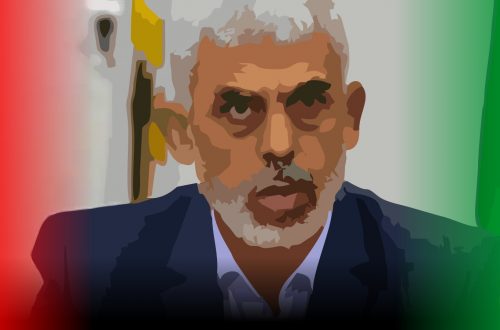This is a guest post by Ben Cohen of Z Word
Here is the Palestinian writer and literary critic Hassan Khader on the “Nakba Narrative.”
Despite the fact that the signed agreements shook the foundations of accepted Palestinian norms and expectations, the PLO did not fail to develop rhetoric that emphasized the extent of its continued commitment to, and perhaps even conformity with, the traditional Narrative, despite obvious contradictions.
He goes on to say:
There is a unique set of dynamics to this ring of contradiction, most which involve attempts to compensate for secretly deviating from the Narrative by engaging in more eloquent rhetoric that invokes the themes of the constants, the conjuring of memory and the supposed optimism of the will. All these compensatory gestures are effective only in preventing any accumulation of political wisdom, and lead us time and again to the same errors. Therefore, the Palestinians continuously return to square one, as if the sixty years of Nakba and a hundred years of conflict in and over Palestine, could not yield a moment of reflection or a single lesson learned.
Khader’s entire piece, thoughtfully translated by the American Task Force on Palestine, can be read here.
This is not the first time that Khader has characterized the Nakba as a form of ideological cage. An article he wrote for Al Ahram in 1998, on the fiftieth anniversary of the creation of Israel, offered the following observation:
Palestine, in reality, was never a paradise; nor was it lost. It was a remote part of the Ottoman Empire, inhabited by poor peasant-farmers. The West Bank and Gaza, which were in and of Palestine, possessed the constituent elements for the perpetuity of Palestinian existence that might have stemmed the deterioration resulting from the annihilation of the larger entity.
However, for the idea of nakba to be complete, the idea of entity could not exist. Consequently, ‘refugee’ became the catchword for identity, which in turn required ignoring the existence of approximately 180,000 Palestinians who remained in that portion of Palestine that was lost. Their continued presence in their country was not viewed as proof of the impossibility of uprooting a people from their land, or as proof of their attachment to their land. Rather it was viewed as cause for embarrassment due to the certain contamination engendered by their daily contact with the usurpers of the land.
Those who read the entire piece will note that Khader is hardly generous when it comes to Zionist readings of Middle Eastern history. He also leaves his reader unsure as to precisely what his political conclusions are (commenters who might be tempted to explain this in terms of “traditional” Arab “duplicity” or “slipperiness” really shouldn’t bother).
But none of this should mask the significance of either his piece from 1998 or today’s offering, which appeared in the leading Arabic daily Al Hayat. Actually, those anti-Zionists who jump up and down with glee whenever an Israeli academic questions, say, the justice of the 1948 War of Independence might want to ponder Khader’s implicit challenge to the kind of historical representations contained, for example, in the opening paragraphs of PACBI’s call to boycott Israel. And, as this account of Palestinian intellectual responses to the 1998 Nakba commemorations shows, Khader is not alone in arguing against the “levelling, nationalist” explanation of the events of 1948.
Ultimately, to puncture the narrative of the Nakba, and to expose the political imperatives which underlie its pretensions to absolute truth, is to simultaneously dispense with the “original sin” theory of Israel’s creation. As Khader writes, the Palestinian leadership has wanted to preserve and deepen the Nakba narrative at the same time as pursuing negotiations with Israel. As a result, the past subsumes the present, so that the “collapse of the Palestinian national movement, and the disasters in education, health and human suffering in Gaza, are thus all rendered merely temporary problems that will pass and are not deserving of any attention.”
It’s an approach – or, as Khader puts it, a “contradiction” – that is no longer sustainable. Those who style themselves as “friends of Palestine” should stop perpetuating it. They might even want to think about how to move beyond it.


